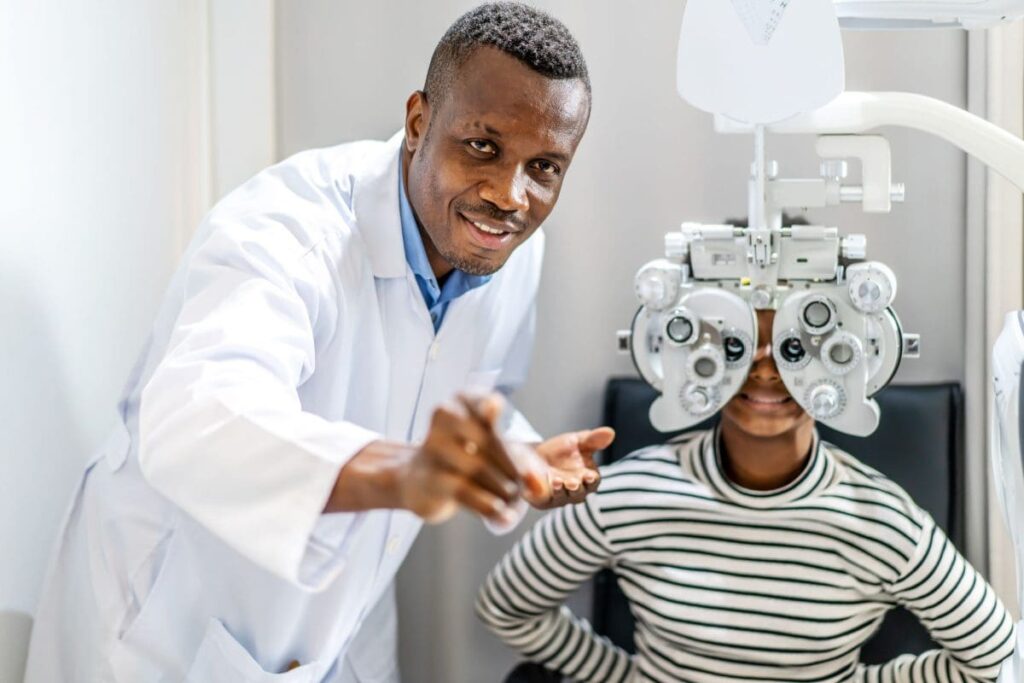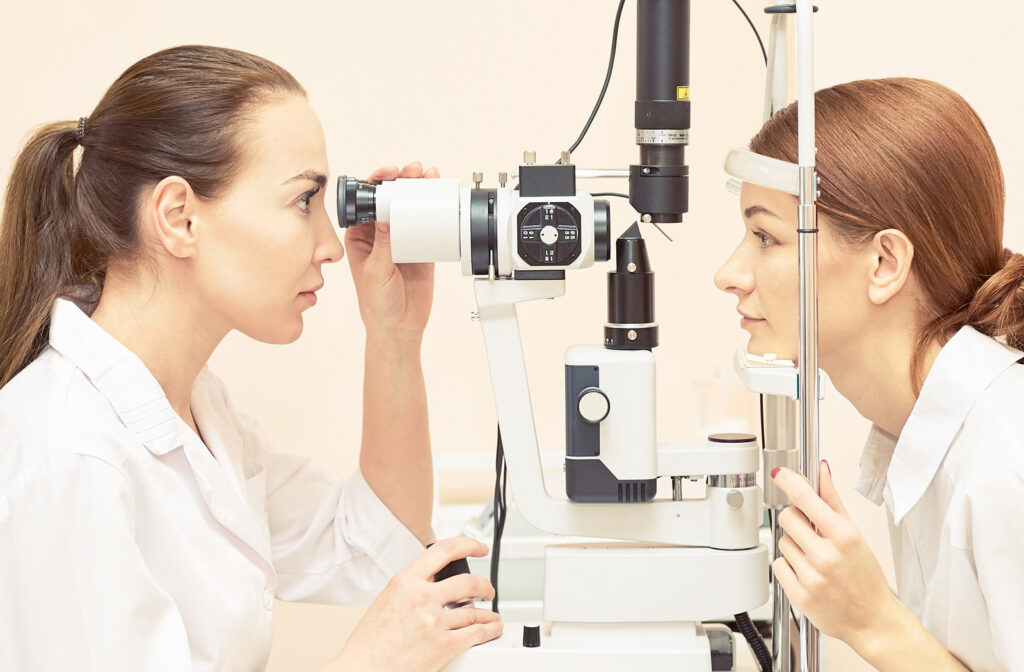When it comes to your eye health, finding a qualified specialist is crucial. Glaucoma, a group of diseases that can damage the optic nerve and lead to vision loss, requires specialized care. In this article, we will explore the key steps in finding a glaucoma specialist who can cater to your eye care needs. By understanding the impact of glaucoma, the role of a specialist, and what to expect during your visits, you can ensure that you receive the comprehensive care you deserve. Let’s delve into the details.
Understanding Glaucoma and Its Impact on Vision
Glaucoma is a complex eye condition that affects millions of people worldwide. It is characterized by increased pressure within the eye, which can lead to irreversible damage of the optic nerve. This damage, if left untreated, can result in permanent vision loss and even blindness. Seeking timely intervention from a glaucoma specialist is crucial in preventing further deterioration of vision.
Glaucoma is a silent thief of sight, often progressing without noticeable symptoms in the early stages. It is essential for individuals, especially those at higher risk such as older adults and individuals with a family history of the disease, to undergo regular eye examinations to detect glaucoma early and start treatment promptly.
What is Glaucoma?
Glaucoma encompasses a group of eye conditions that damage the optic nerve, leading to vision impairment. The most prevalent form, primary open-angle glaucoma, develops slowly over time and is often undetected until significant vision loss has occurred. On the other hand, angle-closure glaucoma is a medical emergency that requires immediate attention to prevent permanent vision loss.
Different Types of Glaucoma
There are various types of glaucoma, each with its unique characteristics and treatment approaches. These include open-angle glaucoma, angle-closure glaucoma, normal-tension glaucoma, and congenital glaucoma. Proper diagnosis and classification of the type of glaucoma are essential in determining the most effective treatment plan for each individual.

Symptoms and Progression of Glaucoma
While early-stage glaucoma may not manifest any noticeable symptoms, as the condition advances, individuals may experience peripheral vision loss, blurred vision, eye pain, and redness. These symptoms can significantly impact daily activities and quality of life. Regular monitoring and follow-up appointments with a glaucoma specialist are vital in managing the progression of the disease and preserving vision for as long as possible.
The Role of a Glaucoma Specialist
A glaucoma specialist is an ophthalmologist who has undergone additional training in the diagnosis, treatment, and management of glaucoma. Their expertise enables them to provide specialized care tailored to the specific needs of glaucoma patients.
Glaucoma is a progressive eye condition that can lead to irreversible vision loss if left untreated. The role of a glaucoma specialist extends beyond just treating the symptoms; they also focus on educating patients about the importance of regular eye examinations and adherence to prescribed treatment regimens. By fostering a collaborative relationship with their patients, glaucoma specialists empower individuals to take an active role in managing their eye health.
What Does a Glaucoma Specialist Do?
A glaucoma specialist is responsible for diagnosing glaucoma, determining the stage and severity of the condition, and developing a personalized treatment plan. They perform various tests, such as tonometry, visual field testing, and optic nerve imaging, to assess and monitor the progression of glaucoma.
In addition to medical interventions, glaucoma specialists may also recommend lifestyle modifications to help manage the condition effectively. This can include advising patients on maintaining a healthy diet, regular exercise, and avoiding activities that can increase intraocular pressure, such as heavy lifting or certain yoga poses. By taking a holistic approach to eye care, glaucoma specialists aim to improve not only the patient’s eye health but also their overall well-being. Learn more about Importance of Exercise at https://www.health.harvard.edu/topics/exercise-and-fitness
The Importance of Specialized Eye Care
Given the complex nature of glaucoma, specialized eye care is essential for the best management outcomes. Glaucoma specialists have in-depth knowledge of the latest treatment options, surgical techniques, and advancements in glaucoma care.
Furthermore, glaucoma specialists collaborate closely with other healthcare professionals, such as optometrists, neurologists, and primary care physicians, to ensure comprehensive care for their patients. This multidisciplinary approach allows for a more holistic evaluation of the patient’s health and enables the development of individualized treatment plans that consider the patient’s overall medical history and unique needs.
Steps to Finding a Glaucoma Specialist
When searching for a glaucoma specialist, it is important to consider certain factors to ensure you find the right professional to address your specific needs.
Glaucoma is a serious eye condition that requires specialized care, so finding a knowledgeable and experienced specialist is crucial for managing the disease effectively. By following these steps, you can navigate the process of selecting the best glaucoma specialist for your individual requirements.
Researching Potential Specialists
Begin by researching potential glaucoma specialists in your area. Look for ophthalmologists who specialize in glaucoma and have extensive experience in treating the condition. Take advantage of online resources, such as patient reviews and professional profiles, to gain insights into each specialist’s expertise.
Consider reaching out to local support groups or organizations dedicated to eye health to gather recommendations from individuals who have firsthand experience with different specialists. Personal referrals can provide valuable insights into the quality of care and level of expertise offered by a particular specialist.
Evaluating Qualifications and Experience
Once you have identified potential specialists, evaluate their qualifications and experience. Check if they are board-certified in ophthalmology and have undergone fellowship training in glaucoma management. Experience in performing glaucoma surgeries and using advanced diagnostic tools is also crucial.
Furthermore, inquire about the specialist’s research involvement and participation in clinical trials related to glaucoma treatment. A specialist who is actively engaged in advancing the field of glaucoma care may offer access to cutting-edge treatments and innovative approaches that could benefit your treatment plan.
Considering Accessibility and Convenience
Accessibility and convenience are important factors to consider. Evaluate the proximity of the specialist’s clinic to your home or workplace, as regular appointments may be necessary. Additionally, inquire about appointment availability and the clinic’s policies regarding emergency visits.
It is also beneficial to inquire about the specialist’s communication style and availability for addressing any concerns or questions you may have between appointments. Establishing a strong rapport with your glaucoma specialist can enhance your overall treatment experience and ensure that you feel supported throughout your care journey.
Preparing for Your First Appointment
Your first appointment with a glaucoma specialist is a crucial step in understanding your condition and developing an effective treatment plan. It is important to arrive at your appointment with any relevant medical records, including previous eye exams, a list of current medications, and a family history of eye conditions. This information will help the specialist gain a comprehensive understanding of your eye health and tailor a treatment plan to meet your specific needs.
Upon entering the specialist’s office, you may be greeted by a friendly receptionist who will assist you with the check-in process. The waiting area is typically designed to provide a comfortable and calming environment, with soothing colors and ample reading material related to eye health and glaucoma management.
What to Expect During Your Visit
During your first appointment, the specialist will review your medical history, conduct a comprehensive eye examination, and perform specific glaucoma-related tests. These tests may include measuring your intraocular pressure, assessing your visual field, and examining your optic nerve. The eye examination is a thorough process that allows the specialist to evaluate the health of your eyes and determine the extent of any damage caused by glaucoma.
After the initial assessments, the specialist will discuss the findings with you in detail, explaining the implications of the test results and outlining potential treatment options. It is important to ask questions and seek clarification on any aspect of your condition or recommended treatment plan that you do not fully understand.
Questions to Ask Your Specialist
To make the most of your appointment, prepare a list of questions to ask your glaucoma specialist. Consider asking about the different treatment options available, the potential risks and benefits of each, and how to effectively manage the condition on a day-to-day basis. Inquire about lifestyle modifications that may help improve your eye health, such as dietary changes, exercise routines, and stress management techniques. By actively engaging with your specialist and seeking information, you can empower yourself to take control of your glaucoma management and maintain optimal eye health.

Maintaining Ongoing Eye Care
Once you have found a glaucoma specialist and established a treatment plan, it is crucial to maintain ongoing eye care to effectively manage your condition.
Regular Check-ups and Monitoring
Regular check-ups with your glaucoma specialist are essential to monitor the progression of the disease and make any necessary adjustments to your treatment plan. These visits may include additional tests and assessments to assess the effectiveness of your current management strategy.
During these check-ups, your specialist will carefully evaluate your intraocular pressure (IOP) to ensure that it remains within a safe range. High IOP is one of the primary risk factors for glaucoma, as it can cause damage to the optic nerve over time. By regularly monitoring your IOP, your specialist can detect any changes early on and take appropriate action to prevent further vision loss.
In addition to measuring your IOP, your specialist may also perform visual field tests to assess your peripheral vision. Glaucoma often affects peripheral vision first, so monitoring any changes in this area is crucial for detecting the progression of the disease.
Understanding Your Treatment Plan
It is vital to have a clear understanding of your treatment plan and follow it diligently. Your specialist will explain the specific medications, eye drops, or surgical interventions recommended for your condition. Adhering to the prescribed regimen is crucial for maintaining the stability of your eye pressure and preventing further vision loss.
During your visits, don’t hesitate to ask your specialist any questions or express any concerns you may have about your treatment plan. They are there to support you and ensure that you have all the information you need to effectively manage your glaucoma. Remember, knowledge is power, and by understanding your treatment plan, you can actively participate in your own eye care. To Read more about understanding your treatment plan click here.
Coping with Glaucoma: Lifestyle Changes and Support
Managing glaucoma involves more than just medical interventions. It is important to adopt healthy lifestyle habits, such as maintaining a balanced diet, exercising regularly, and avoiding tobacco and excessive alcohol consumption.
Eating a diet rich in fruits and vegetables, particularly those high in antioxidants, can help protect your eyes from oxidative stress. Regular exercise, such as walking or swimming, can improve blood flow to the optic nerve and reduce intraocular pressure. Additionally, avoiding tobacco and limiting alcohol consumption can help minimize the risk of further damage to your eyes.
Living with glaucoma can also have an emotional impact, as it may bring about feelings of anxiety, fear, or frustration. It is essential to seek support from others who are going through a similar experience. Support groups or counseling services can provide a safe space to share your concerns, learn coping strategies, and gain valuable insights from others who understand what you are going through.
In conclusion, finding a glaucoma specialist is a critical step in ensuring that your eye care needs are met effectively. By understanding the impact of glaucoma, the role of a specialist, and what to expect during your visits, you can navigate the process with confidence. Remember to research potential specialists, evaluate their qualifications and experience, and consider accessibility and convenience. Be prepared for your first appointment and maintain ongoing eye care to effectively manage your glaucoma. Remember, early detection and proper treatment can help preserve your vision for years to come.
